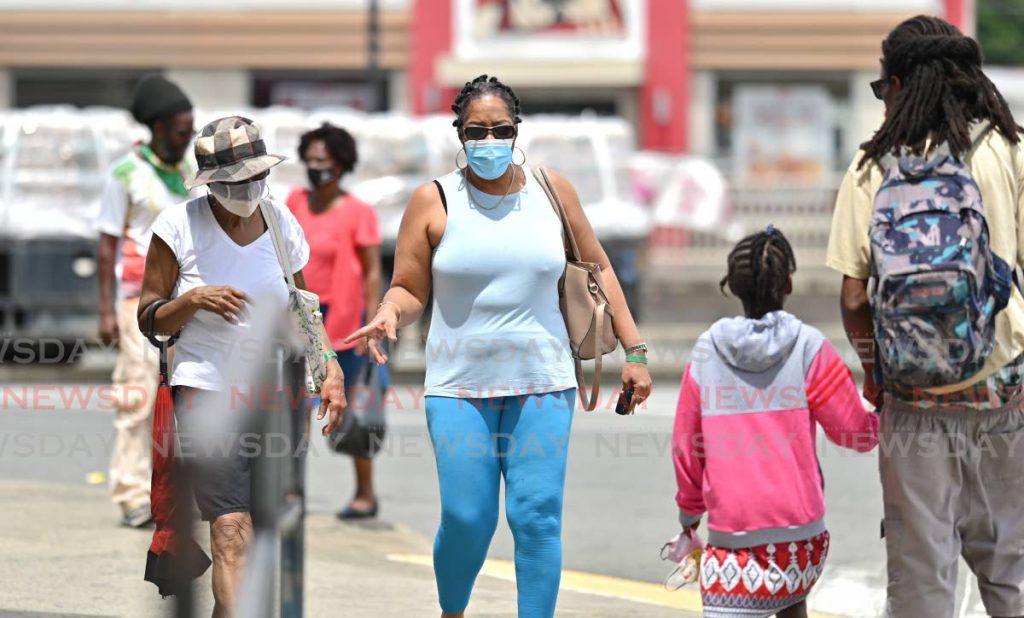PAHO director Dr Carissa F Etienne said on Wednesday women have been hard hit by interruptions of reproductive and maternal health services due to the covid19 pandemic.
She warned any continuation of this could obliterate 20 years of progress in reducing maternal mortality and increasing access to family planning in Latin America and the Caribbean.
“I want to spotlight the devastating health, social and economic impacts that this virus has had on women,” she said at her weekly media briefing. “According to UN estimates, up to 20 million women in the Americas will have their birth control disrupted during the pandemic, either because services are unavailable or because women will no longer have the means to pay for contraception.”
Pregnancy and newborn care also have been interrupted in nearly half of countries in the Americas, she said. Also, pregnant women were generally more vulnerable to respiratory infections such as covid19.
"If they get sick, they tend to develop more serious symptoms that require intubation, which can put both the mother and baby at risk.
“Nearly all maternal deaths are preventable and even getting back to pre-pandemic levels of maternal mortality, which were already high, could take more than a decade.”
She said the maternal mortality rate in the region fell by 23 per cent between 2000 and 2017, from 96 to 74 maternal deaths per 100,000 live births.
Noting the upcoming International Day of Action on Women’s Health on May 28, Etienne said, “We urge countries to do just that, to act.
"We can start by ensuring that women and girls can access the health services they need, like sexual and reproductive health services, and pregnancy and newborn-related care, during the covid response.”
She added, “We must remember that the challenges and inequities that we faced prior to covid haven’t gone away during the pandemic. They have only worsened and can’t be overlooked. That’s why we must make protecting the lives of women a collective priority.”
Etienne also drew attention to the WHO's recent assertion that covid19 casualties have been seriously under-reported.
“Covid's true global 2020 death toll is closer to three million people – nearly double the figures reported last year,” she said. “Worryingly, half of these deaths have taken place here, in the Americas, demonstrating the outsized impact this pandemic has had in our region.”
She said last week over 1.2 million new covid19 cases and 31,000 deaths were reported in the Americas.
“These figures have remained unchanged over the last weeks, illuminating a worrying trend: cases and deaths are plateauing at alarmingly high levels.
“In fact, last week, four out of five of the countries reporting the highest number of new infections were here in our region, and Latin American countries represented the top five highest mortality rates worldwide.”
She noted increases in cases in Central American countries, including Costa Rica, Panama, Belize, and Honduras, where ICU beds were at more than 80 per cent capacity.
"In the Caribbean, Trinidad and Tobago has declared a national emergency following a recent covid19 outbreak. Cuba continues to report a significant increase, and St Vincent and the Grenadines are still experiencing spikes after people were moved to shelters because of recent volcanic eruptions.
“We are also concerned about increasing trends in hospitalisations in Haiti."
In South America, new infections have declined in Chile, Peru, and Paraguay.
"But Uruguay, Argentina, and Brazil, after experiencing progress for several weeks, are once again seeing a rise in cases. Bolivia is reporting a dramatic increase in cases and deaths, and Guyana is experiencing its highest volume of cases and deaths since the beginning of the pandemic."

